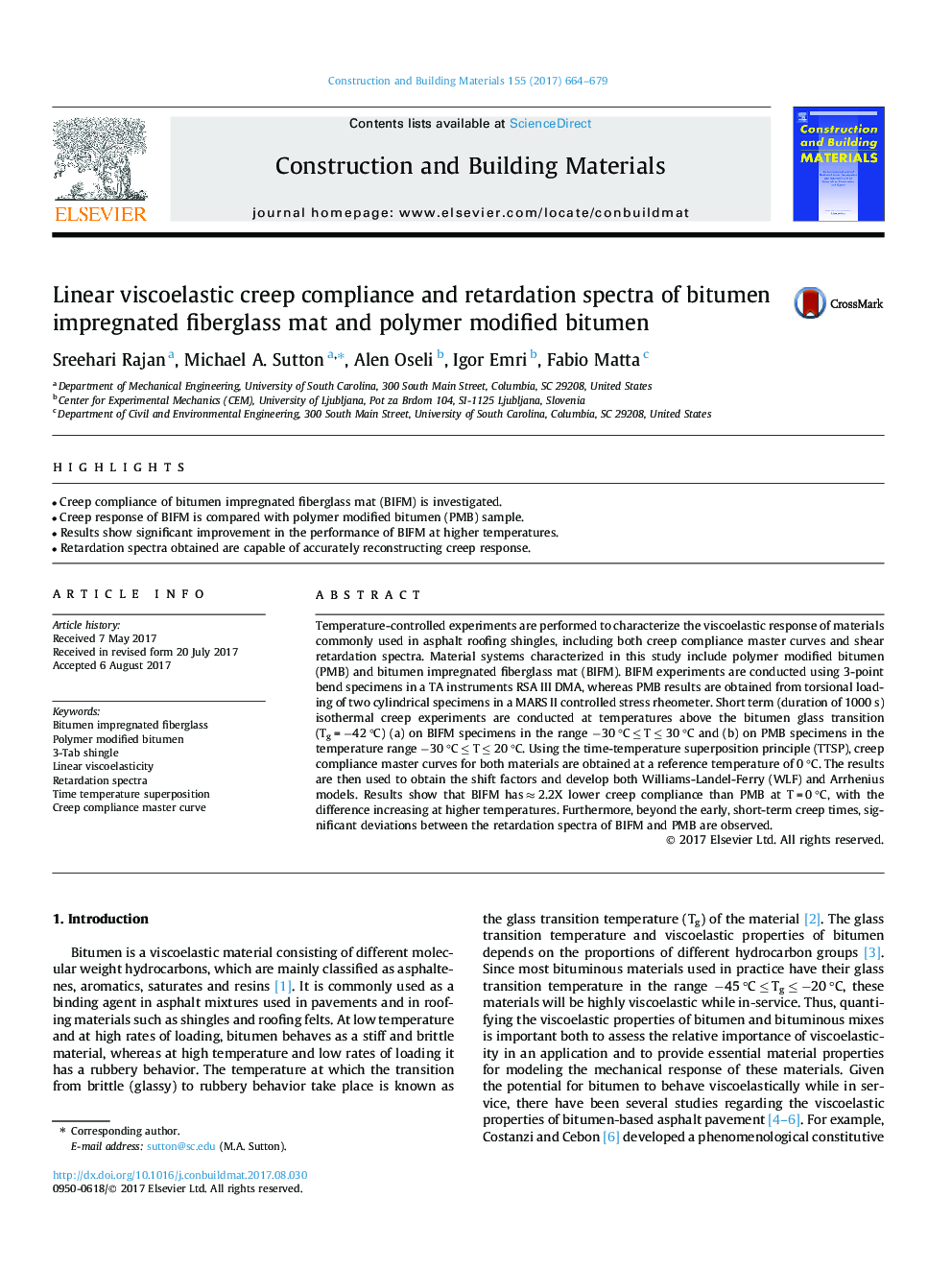| Article ID | Journal | Published Year | Pages | File Type |
|---|---|---|---|---|
| 4918111 | Construction and Building Materials | 2017 | 16 Pages |
Abstract
Temperature-controlled experiments are performed to characterize the viscoelastic response of materials commonly used in asphalt roofing shingles, including both creep compliance master curves and shear retardation spectra. Material systems characterized in this study include polymer modified bitumen (PMB) and bitumen impregnated fiberglass mat (BIFM). BIFM experiments are conducted using 3-point bend specimens in a TA instruments RSA III DMA, whereas PMB results are obtained from torsional loading of two cylindrical specimens in a MARS II controlled stress rheometer. Short term (duration of 1000 s) isothermal creep experiments are conducted at temperatures above the bitumen glass transition (Tg = â42 °C) (a) on BIFM specimens in the range â30 °C â¤Â T â¤Â 30 °C and (b) on PMB specimens in the temperature range â30 °C â¤Â T â¤Â 20 °C. Using the time-temperature superposition principle (TTSP), creep compliance master curves for both materials are obtained at a reference temperature of 0 °C. The results are then used to obtain the shift factors and develop both Williams-Landel-Ferry (WLF) and Arrhenius models. Results show that BIFM has â 2.2X lower creep compliance than PMB at T = 0 °C, with the difference increasing at higher temperatures. Furthermore, beyond the early, short-term creep times, significant deviations between the retardation spectra of BIFM and PMB are observed.
Related Topics
Physical Sciences and Engineering
Engineering
Civil and Structural Engineering
Authors
Sreehari Rajan, Michael A. Sutton, Alen Oseli, Igor Emri, Fabio Matta,
